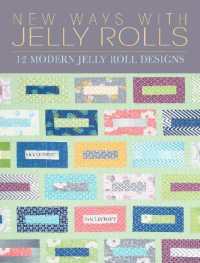Full Description
Tinnitus clinical services are far from standardized and there is no system for credentialing clinicians for competency in providing tinnitus care. While a number of well-established, research-based methods are available for the clinical management of tinnitus, no one method has been proven more effective than the others, and differences in methodology result in different outcomes. Authored by James A. Henry, PhD, internationally recognized tinnitus researcher and clinician, Tinnitus Stepped-Care: A Standardized Framework for Clinical Practice provides a framework for addressing these differences in order to deliver tinnitus care in a logical, step-wise fashion. Clinicians can continue to utilize their preferred methodology, but within the uniform framework that is offered by Tinnitus Stepped-Care. A clinic adopting this framework would follow these specific steps:
Step 1 - Triage: Inform other hospitals and clinics in their geographic area about tinnitus and how to properly refer patients who complain of tinnitus.
Step 2 - Audiology Services: Conduct the initial assessment of patients using a minimum of specific measures that are consistent across clinics.
Step 3 - Tinnitus Education: Advance patients with bothersome tinnitus to learn about tinnitus, how and why it can be bothersome, and what realistically can be done about it.
Step 4 - Tinnitus Counseling: Make available an established, research-based method of treatment for tinnitus.
Step 5 - Comprehensive Assessment: Conduct a comprehensive assessment for patients who require further care—to determine why services thus far have been inadequate.
Step 6 - Expanded Treatment: Provide further treatment or refer patients to another tinnitus specialist to address any needs identified in Step 5.
Key Features
Includes reproducible clinical tools and assessments, such as the Tinnitus Screener, Tinnitus and Hearing Survey, Sound Hypersensitivity Interview, and Tinnitus Interview
Provides detailed clinical algorithms, flowcharts, and visual aids, including the Step 2 Audiology Services Decision Tree and the comprehensive Tinnitus Stepped-Care flowchart to support decision-making
A dedicated chapter on how to screen for and assess hyperacusis, misophonia, noise sensitivity, pain hyperacusis, and phonophobia
Discusses how testing the stepped-care approach could be done with the creation of a learning health network (LHN) that is specific to tinnitus to foster collaborative clinical research and standardize tinnitus care nationally
While primarily written for audiologists who are the main providers of tinnitus clinical services, the book is also be appropriate for psychologists and other mental health clinicians who provide tinnitus counseling, and for otolaryngologists who often see tinnitus patients but are generally unaware of the basic procedures for providing tinnitus care.
PluralPlus Online AncillariesForms/Documents, Appendices








